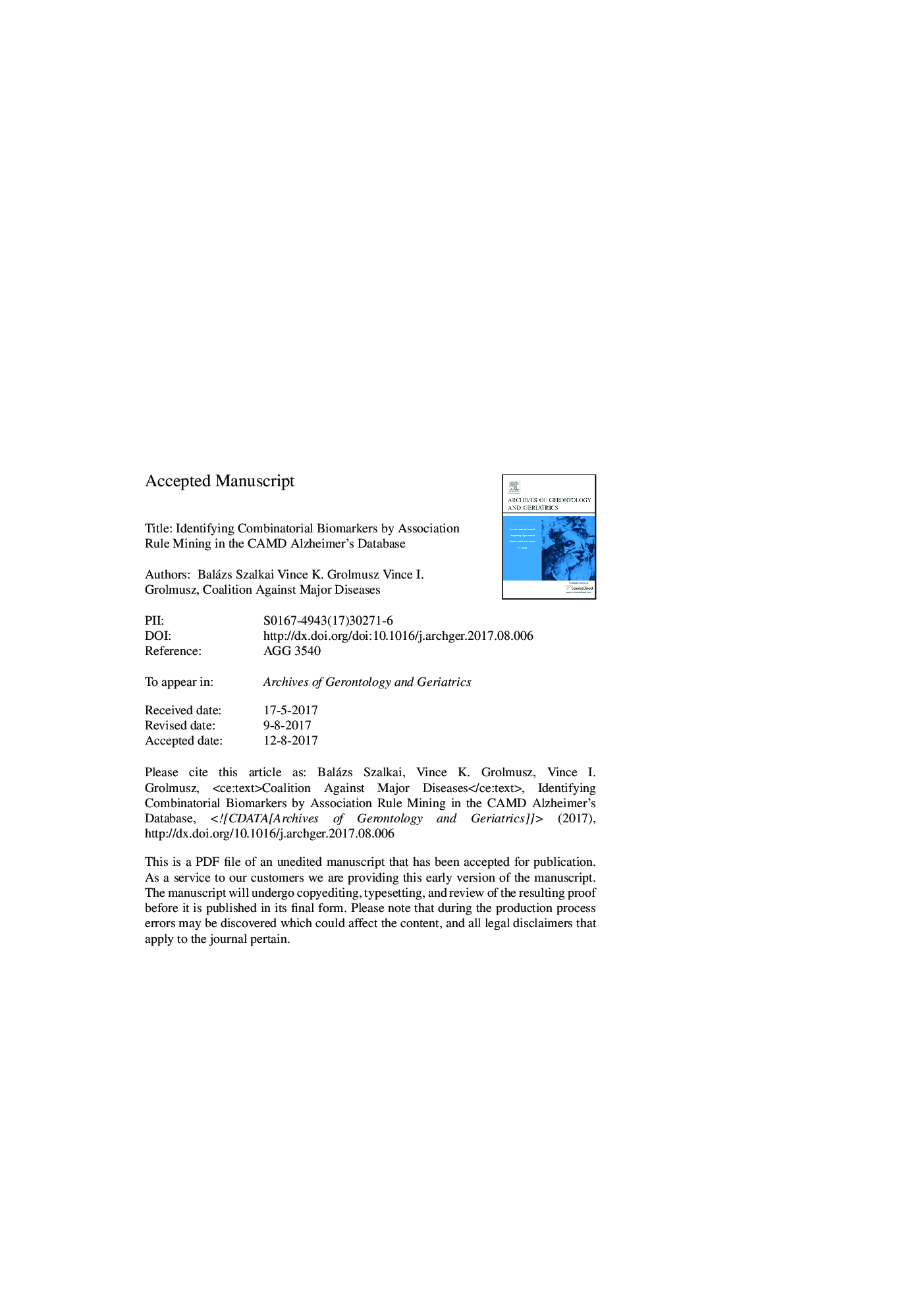| Article ID | Journal | Published Year | Pages | File Type |
|---|---|---|---|---|
| 5500883 | Archives of Gerontology and Geriatrics | 2017 | 27 Pages |
Abstract
The concept of combinatorial biomarkers was conceived when it was noticed that simple biomarkers are often inadequate for recognizing and characterizing complex diseases. Here we present an algorithmic search method for complex biomarkers which may predict or indicate Alzheimer's disease (AD) and other kinds of dementia. We show that our method is universal since it can describe any Boolean function for biomarker discovery. We applied data mining techniques that are capable to uncover implication-like logical schemes with detailed quality scoring. The new SCARF program was applied for the Tucson, Arizona based Critical Path Institute's CAMD database, containing laboratory and cognitive test data for 5821 patients from the placebo arm of clinical trials of large pharmaceutical companies, and consequently, the data is much more reliable than numerous other databases for dementia. The results of our study on this larger than 5800-patient cohort suggest beneficial effects of high B12 vitamin level, negative effects of high sodium levels or high AST (aspartate aminotransferase) liver enzyme levels to cognition. As an example for a more complex and quite surprising rule: Low or normal blood glucose level with either low cholesterol or high serum sodium would also increase the probability of bad cognition with a 3.7 multiplier. The source code of the new SCARF program is publicly available at http://pitgroup.org/static/scarf.zip.
Related Topics
Life Sciences
Biochemistry, Genetics and Molecular Biology
Ageing
Authors
Balázs Szalkai, Vince K. Grolmusz, Vince I. Grolmusz, Coalition Against Major Diseases Coalition Against Major Diseases,
